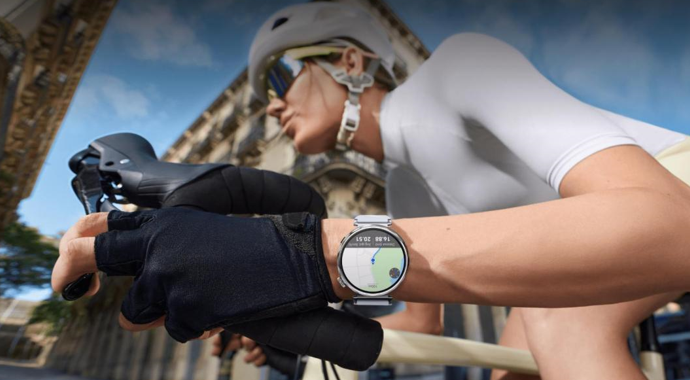Smartwatch vs. Fitness Tracker: Which Is Right for You?

Choosing between a smartwatch and a fitness tracker can feel confusing when both devices seem to offer similar features at first glance. Your decision ultimately depends on whether you want a comprehensive wearable computer for your wrist or a dedicated health companion that quietly tracks your activity. Smartwatches keep you connected with notifications and apps, while fitness trackers focus primarily on monitoring your physical wellbeing throughout the day. Understanding these core differences will help you select the device that best matches your lifestyle and needs. In this article, we will explore the key distinctions between smartwatches and fitness trackers to guide your purchasing decision.
Core Purpose and Key Features
Smartwatches: Notifications, Apps, and Connectivity
Smartwatches function as miniature smartphones for your wrist, keeping you connected without constantly checking your phone. They display calls, texts, email previews, and app notifications directly on your wrist, allowing you to stay informed during meetings or workouts. Many smartwatches support third-party apps for everything from music control to navigation, and some even enable voice commands for setting reminders or sending quick replies. This constant connectivity comes at the expense of battery life, typically requiring charging every day or two. If you value staying connected and want a versatile device that does more than track health, a smartwatch might be your best choice.
Fitness Trackers: Activity and Health Focus
Fitness trackers specialize in monitoring your physical activity and health metrics with minimal distractions. They accurately count steps, measure heart rate continuously, analyze sleep patterns, and many include built-in GPS for mapping outdoor exercises without needing your phone. These devices typically feature longer battery life, often lasting a week or more on a single charge, making them ideal for those who prefer low-maintenance wearables. While they may show basic notifications, they lack the extensive app support and interactive features of smartwatches. If your primary goal is health monitoring with minimal smartphone-like features, a fitness tracker will serve you well.
Battery Life and Convenience
Battery life represents one of the most significant practical differences between these devices. Fitness trackers generally last five to seven days or even longer on a single charge, meaning you can wear them continuously for sleep tracking and only need to remember to charge them weekly. Smartwatches, with their brighter displays and smarter features, typically require charging every one to two days, which might interrupt sleep tracking if you charge overnight. Consider your charging habits and whether you mind taking off your device frequently. Longer battery life provides convenience for travelers and those who prefer not to worry about daily charging routines.
See also: Electron Beam Drilling: A Precision Technique
Health and Fitness Tracking Depth
Basic Metrics: Steps, Heart Rate, Sleep
Both device types excel at tracking fundamental health metrics, though with varying levels of detail. They reliably count steps, measure heart rate throughout the day, and provide sleep stage analysis (light, deep, REM). Fitness trackers often present this information in straightforward interfaces focused on activity goals and trends over time. Smartwatches typically include these features alongside their other capabilities, sometimes with more advanced analysis through companion apps. For general wellness tracking and maintaining an active lifestyle, both options work well, but fitness trackers often do so with greater battery efficiency.
Advanced Features: GPS, ECG, SpO2
When it comes to advanced health monitoring, smartwatches generally offer more comprehensive features. Many include built-in GPS for accurate distance tracking without your phone, blood oxygen saturation (SpO2) monitoring for wellness insights, and some even provide electrocardiogram (ECG) functionality for heart health assessment. While some fitness trackers include these features, they’re more common in smartwatches. If you’re serious about training or want detailed health insights, a smartwatch likely provides more advanced metrics. However, consider whether you’ll actually use these features before paying extra for them.
Price and Style Considerations
Budget-Friendly vs. Premium Designs
Fitness trackers typically cost significantly less than smartwatches, making them accessible entry points into wearable technology. Smartwatches command higher prices due to their advanced processors, brighter displays, and additional features. However, within both categories, prices vary based on materials, brand, and capabilities. Determine your budget first, then see which type offers the best value for your needs. Remember that a higher price doesn’t necessarily mean better health tracking—some dedicated fitness trackers outperform more expensive smartwatches in accuracy and battery life.
Customization and Everyday Wear
Smartwatches generally offer more customization options, both in terms of watch faces and interchangeable bands, allowing you to match your device to different occasions and outfits. Many feature premium materials like stainless steel, ceramic, or leather for a more sophisticated look. Fitness trackers tend toward sportier, less formal designs with simpler silicone bands, though some brands offer elegant options. Consider when and where you’ll wear your device—if you want something that transitions from workouts to professional settings, a smartwatch might offer more versatility.
Conclusion
The ideal choice between a smartwatch and a fitness tracker depends on your daily needs. If you prioritize long battery life, detailed health monitoring, and minimal distractions, a fitness tracker is likely sufficient. If you prefer staying connected with notifications, apps, and more advanced smart features alongside health tracking, a smartwatch becomes a better option. For those seeking a balanced solution, the Huawei Watch GT6 Pro offers extensive health sensors, smart functionality, and exceptional battery life in a stylish design. When considering the huawei watch gt6 pro price, it represents strong value given its premium features and versatility. Ultimately, choose a wearable that fits your lifestyle and supports your wellness and connectivity goals.





